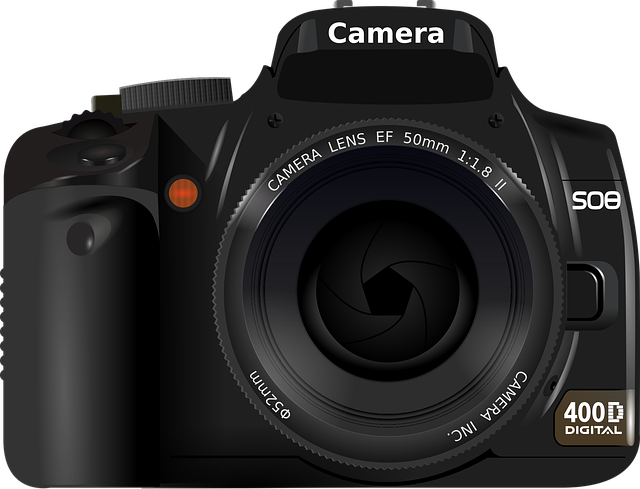Real-time 4D ultrasound is transforming fetal care with dynamic, live 3D images, enabling detailed monitoring and early anomaly detection. It revolutionizes personalized treatment planning by visualizing organs, tumors, and fetal development in motion. This technology powers 3D bioprinting, offering a solution to the organ donor shortage. Furthermore, it facilitates early disease detection through non-invasive views of internal structures, enabling proactive healthcare management.
The future of healthcare lies in personalized treatments, and cutting-edge imaging technologies are paving the way. This article explores emerging innovations in 3D and 4D imaging that revolutionize patient care. From real-time 4D ultrasounds offering unprecedented insights into fetal development to advanced bioprinting techniques creating customized organs, these developments promise more precise diagnoses and tailored treatments. We delve into how these technologies are transforming healthcare, focusing on improved outcomes and enhanced patient experiences.
Real-Time 4D Ultrasound: Advancing Fetal Care
Real-Time 4D ultrasound is transforming fetal care, offering doctors an unprecedented level of detail and dynamic insight into fetal development. Unlike traditional 2D ultrasounds that capture static images, real-time 4D technology generates live, three-dimensional images that can be viewed as a sequence of moving pictures. This innovation allows healthcare professionals to observe fetal growth and movements in real time, enhancing their ability to monitor and assess various aspects of fetal health.
By providing more complete and accurate data, real-time 4D ultrasound aids in early detection of potential anomalies, improves diagnostic accuracy, and enables doctors to make more informed decisions regarding pregnancy care. This advanced imaging technology is particularly valuable for high-risk pregnancies, helping healthcare providers tailor their approach to ensure the best possible outcome for both mother and child.
Personalized Treatment Planning with Advanced Imaging
Personalized treatment planning has seen a significant boost thanks to advanced imaging technologies, particularly real-time 4D ultrasound. This innovative approach allows healthcare professionals to visualize and monitor organs, tumors, or fetal development in unprecedented detail and motion. By integrating this data into treatment strategies, physicians can tailor interventions precisely to the patient’s unique anatomy, ensuring more effective and safer procedures.
Real-time 4D ultrasound provides dynamic images that offer a comprehensive understanding of physiological processes. This capability is invaluable for planning complex surgeries, radiation therapies, or even guiding drug delivery systems. With such detailed insights, personalized healthcare becomes not just a concept but a reality, opening doors to improved patient outcomes and enhanced quality of life.
3D Bioprinting: Customized Organ Reproduction
3D bioprinting is a groundbreaking technology that holds immense potential in personalized healthcare, particularly for organ reproduction and transplantation. By using bioinks made from cells, growth factors, and other biomaterials, 3D bioprinters can create custom-designed tissues and organs with complex structures and functionalities. This innovative approach enables researchers to fabricate functional human tissues and even mini-organs, offering a promising solution to the global shortage of organ donors.
Real-time 4D ultrasound technology plays a pivotal role in this process, providing detailed imaging capabilities during the bioprinting process. It allows scientists to visualize the formation of structures layer by layer, ensuring precise control and real-time adjustments. This dynamic aspect is crucial for creating complex organs with intricate architectures, paving the way for more effective and personalized medical treatments tailored to individual patient needs.
Early Disease Detection Through Innovative Techniques
Early Disease Detection has become a cornerstone in personalized healthcare, and innovative imaging techniques are at the forefront of this revolution. One such game-changer is real-time 4D ultrasound, which goes beyond traditional 2D imaging by providing a dynamic view of internal structures. This technology enables medical professionals to observe living tissues and organs in real-time, facilitating earlier and more precise disease detection.
By capturing multiple images over time, 4D ultrasound helps identify subtle changes that might indicate the early stages of conditions like tumors or cardiovascular abnormalities. Moreover, its non-invasive nature makes it a preferred choice for routine screenings and longitudinal monitoring, allowing for proactive healthcare management and improved patient outcomes.
Emerging technologies like real-time 4D ultrasound, advanced imaging, 3D bioprinting, and innovative disease detection techniques are revolutionizing personalized healthcare. These tools empower medical professionals with unprecedented insights, enabling them to deliver more precise diagnoses and tailored treatments. As these innovations continue to evolve, they hold immense potential for enhancing patient outcomes and transforming the landscape of modern medicine.
